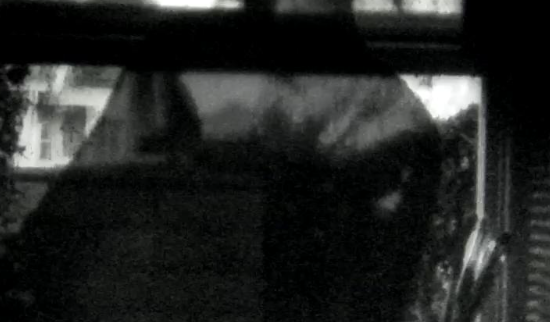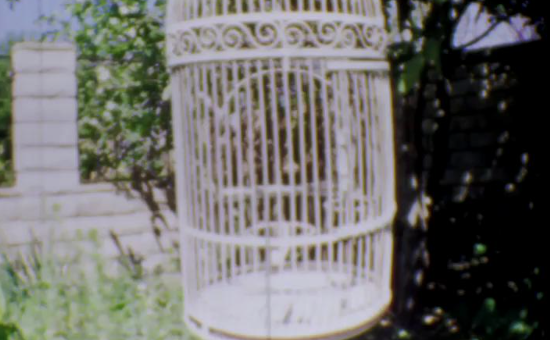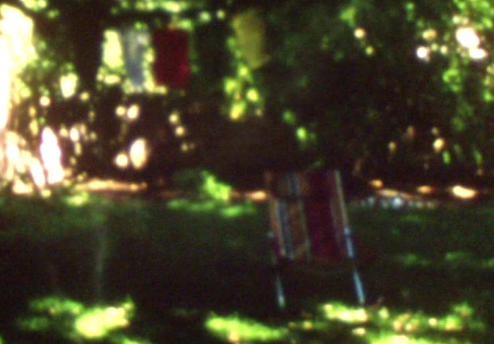Jo Jo Lam is a cinematographer born and raised in Hong Kong who has since lived and worked in Australia, the UK, and France. She’s based between Los Angeles and Paris and speaks Chinese, English, and French fluently. Jo Jo hopes to use the language of cinema to tell bold and empathetic stories internationally with others who strive for the same. She holds an MFA in Cinematography from the AFI Conservatory and was recognized by the Kodak Vision Award for Excellence in Cinematography for the project “Ceremony” in 2019. Jo Jo has also recently been invited to participate in the BAFTA Newcomers Talent Program and the American Society of Cinematographers’ (ASC) Vision Mentorship Program.
An Interview with Jo Jo Lam:

What is one of the most rewarding productions you have worked on and why?
One of the most rewarding productions I’ve had the privilege to work on is a short film called The Hideaway’, directed by Jane Stephens Rosenthal.
It’s a coming-of-age story about a 14-year-old tomboy, Nika ( Evee White) questioning her place in the adolescent world. When she hears a rumor that her mother is a stripper, she decides to investigate. I was extremely humbled and excited to be invited by Jane to photograph this story. Jane and I have a very unique collaborative relationship in how we see art, cinema & filmmaking in general. We share a similar vocabulary in terms of references ranging from films, art, literature, and photography.
I just knew she would have a very unique perspective in telling this story. We both have the belief that no tale is ordinary, it all depends on the way you tell it and I knew Jane was going to tell this story of a girl turning into a woman and her growing pains in a very specific way.
I proposed testing and shooting with Anamorphic lenses with a wide cinemascope. The idea is to give the short film a dimension that feels larger than life. In cinema, there’s usually a tendency to default to a type of visual grammar to portray “ social realism”. It’s usually with a lot of rough handheld shots in a cold and gritty environment. We wanted to go against this tendency and went for a more stylistic, almost fantastical approach to have our characters be the lead of their extraordinary tales. We chose to shoot from the younger Nika’s perspective where the world feels so large and overwhelming but also hopeful and full of possibilities
through playing with color contrast. This duality is something we were really interested in diving into here.
The film has been really well received and gone on to play at multiple festivals worldwide namely AFI Fest, Hollyshorts Film Festival, LA Shorts, the Cinegear film series domestically, and Evolution Mallorca Film Festival, Bolton FIlm festival internationally. It has also been recognized and won Best Cinematography at the Monza Film Festival, Beyond the Curve Film Festival, and the Platinum Remi Award at the Houston International film festival. Seeing the film’s continuous success on the festival circuit has been so encouraging as everyone’s work continuously gets acknowledged and seen!
 How does your experience living and working internationally influence your approach to story?
How does your experience living and working internationally influence your approach to story?
This inexplicable urge to connect and tell stories existed from the very beginning since I was a young kid growing up in Hong Kong. My experience of living in all these extremely different countries (Australia, UK, France, US) has definitely impacted my approach to storytelling.
As a DP, I’m most excited by the image’s ability to transport an audience elsewhere through movement, composition, and lighting. All of this creates a world, a mood, and ultimately a sensorial experience without words. It becomes something you can unconsciously relate to or perhaps prompt you to recall something, and I’m really interested in that as a cinematographer.
How to transcend cultural boundaries through visual storytelling is something I constantly think about. Cinematography is the best tool for me to bring all these diverse experiences and influences to the table and I’ve also had the great fortune of working on many productions internationally.
 Who are some of your influences (favorite DPs, artists, etc.)?
Who are some of your influences (favorite DPs, artists, etc.)?
Robby Muller (Paris, Texas, Mystery Train, The American Friend), Ed Lachman (Carol, I’m Not There, The Paradise Trilogy), Jean-Yves Escoffier( The Lovers on the Bridge, Gummo) and Hélène Louvart( Happy as Lazarro, Beach Rats) have had a huge influence on me as DPs but this list could go on probably forever.
The cinema of Wong Kar Wai in Hong Kong from the 90s also had a tremendous impact on me – especially the lesser-known Happy Together and Chungking Express. The cinema of Michael Haneke, Andrei Tarkovsky, Leos Carax, Hou Tsou Tisen, Edward Yang, Jia Zhangke, Lynne Ramsay, Andrea Arnold, and Claire Denis to name a few continue to challenge and invigorate me as a filmmaker.
 In your experience, what makes for a good relationship between a DP and a director?
In your experience, what makes for a good relationship between a DP and a director?
I believe a good relationship between a director and a DP begins very early – they don’t necessarily need to see the world in the same way. Quite the opposite I reckon, the more diverse references they bring to the table, the more stimulating the discussions. I believe in scouting and prepping enormously and always try to give as much time as possible to get to know one another and develop some sort of common vocabulary and shorthand so that on the day there’s already a foundation and an anchor. We can always trust and fall on that when chaos reigns (which always does at a certain point onset). Being prepared also allows room and space for improvisation and elements of surprises which sometimes turn out to be these little gems in the film that none of us can ever foresee or prepare for. Our job is to be ready at all times and to give the directors and actors space so when the ‘magic’ does happen, we are there, ready to capture it.
 Looking forward, how do you aspire to grow in your career?
Looking forward, how do you aspire to grow in your career?
Ideally, I’d love to grow my career internationally, given I’m trilingual and would love to continue to work between the US, UK and Europe. I am represented by an acclaimed British Below the Line Agency called ‘ Echo Artists’ and would love to keep developing and working between the two continents. Narrative fiction features is where my passion lies, though I also continue to hone my craft through other mediums such as commercials, music videos, art films, and documentaries. Further than that, I’ve also become more aware and engaged on how our industry in general privileges a pretty select group of voices that doesn’t reflect the more multicultural environments that we have been living in. Accessibility, diversity, and inclusivity are issues that have become very important to me, specifically in the way we work and create cinema both behind and in front of the camera. I feel strongly about changing that and am very cognizant of how I put my team together and what kind of projects I choose to tell.
 Would you discuss any upcoming projects you’re excited about?
Would you discuss any upcoming projects you’re excited about?
I just wrapped my first feature debut with the Student Academy awards winner, Georden West in September 2021. ‘Playland’ features a cast and creative team entirely made up of LGBTQIA2+ talent. I cannot share too much yet as the film is currently in post-production but the shoot took place over 8 days which was an impossible feat in and of itself with a grueling schedule. Yet it was one of the most fulfilling experiences I had as a DP as the project is incredibly ambitious, challenging, and experimental. It was an exhilarating experience and I cannot wait and see where this film will go. I’m also currently prepping for a documentary in the US and have some projects in the works both in the UK and France.
 Contact Info:
Contact Info:




No Comments